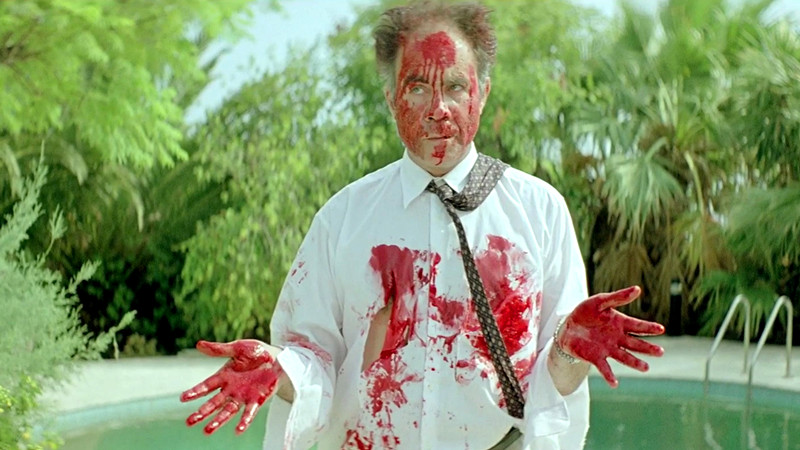
Sometimes the greatest films are the ones that you may not be able to bring yourself to watch. It can be hard for them to capture our full attention because of their unorthodox and groundbreaking storytelling or visual style. Or because they touch a nerve. Or because they are simply too appalling. For any given reason, a film may be great without being pleasant. But behold! This correlation does not suggest causation; unpleasantness does not equal great film.
However, the great films that are indeed unpleasant and a tough sit do deserve our attention. And they do because they do not entice enough, but have the power to provoke our thoughts and make us push through concepts and our daily “box thinking” ways. Hereby, is a list of films that haven’t got the “pleasantness and entertainment” appeal but are great and innovative cinematic works that nourish unconventional ideas.
1. Pink Flamingos
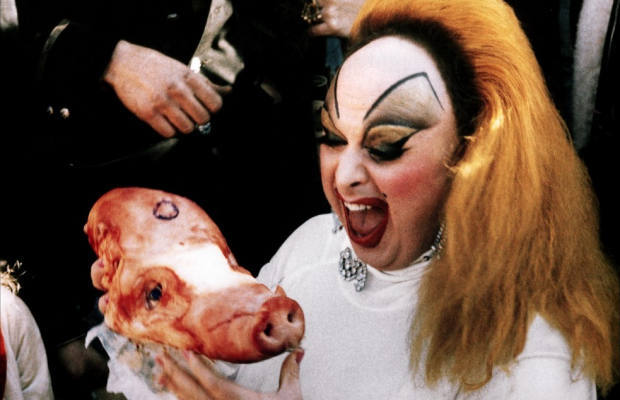
If visual irony were to be coined as a term, a poignant example of it would be the calligraphic opening captions of “Pink Flamingos” and the film distributor being “Dreamland,” which sharply contrasts with the events that will ensue in the next 106 minutes. Badly written, badly filmed, badly acted and of “poor taste” as the creator himself suggests, “Pink Flamingos” is a great film.
Combining extravagant and inhuman characters and creating an implausible, goofy yet aberrant universe to preserve them seems like a doomed task. However, this purposefully repulsive and sloppy film has managed to receive wide critical acclaim and be seated in a warm spot in the hearts of its many fans. Nevertheless, recognizing its anarchic power and imaginative force doesn’t mean you enjoy it altogether. Not only is it hard to enjoy but one might even say you need a stomach for it.
Drag queen Divine stars as Babs Johnson, a flamboyant criminal who takes pride in being “the filthiest person alive.” Babs lives in a trailer park, avoiding the eyes of the law, with her obese egg-obsessed mother (Edith Massey), her deviant son Crackers (Danny Mills) and her travelling companion Cotton (Mary Vivian Pierce).
A vendetta unfolds when the Marbles (Mink Stole and David Lochary), a degenerate couple that kidnaps women, and has their hyper-fertile male servant (Channing Wilroy) rape and impregnate them to sell their babies to lesbian couples, decide to strip Babs of her title. But Babs isn’t going down without a fight.
“Pink Flamingos” is a repulse because of its depiction of animal cruelty, rape, murder, vomiting, incest, excrement consumption, foot fetishism, frivolity and many other appalling acts. However, it is so comical that it cannot be strictly classified as “disturbing.”
Paradoxically, by their obsessive exclamations of wanting to be “the filthiest people in the world,” the characters convey a childlike innocence despite their atrocious acts. Their complete disregard for societal norms and deliberate divergence from them creates a mystical appeal about this surrealist contest in depravity. It’s hard to say whether the film has meaning, but this is also where its appeal lies.
2. The Piano Teacher
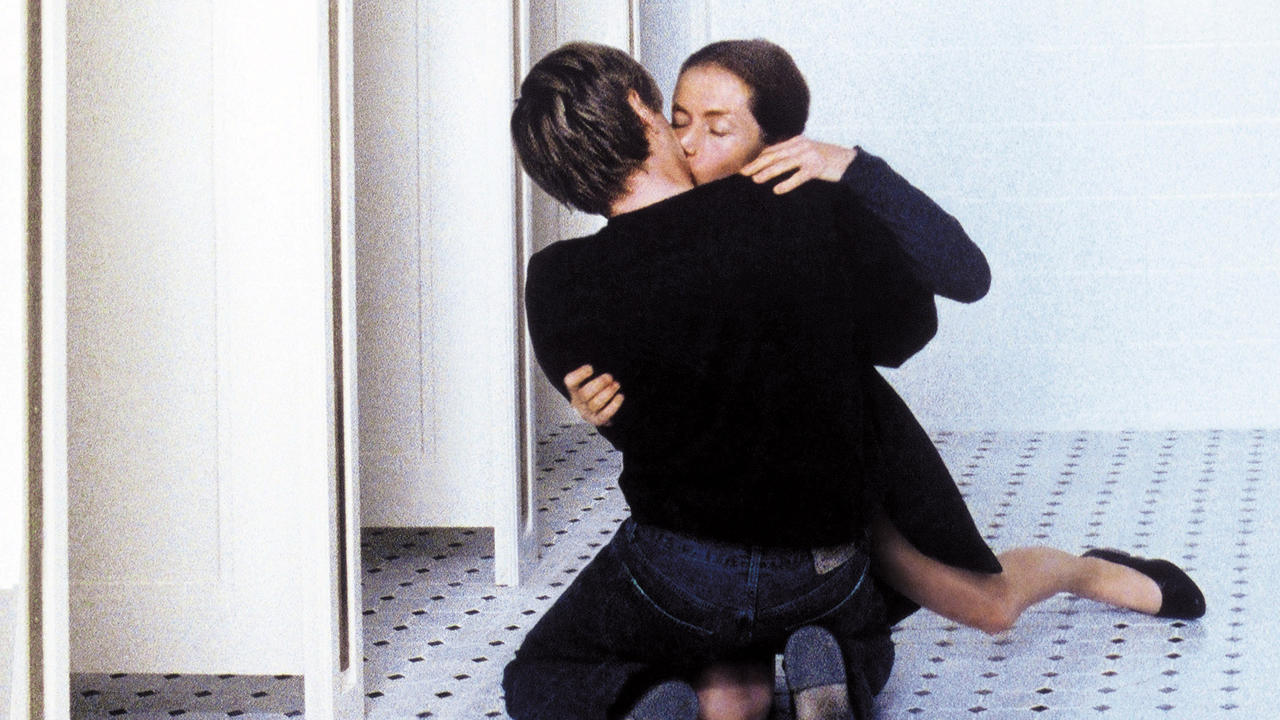
Michael Haneke is the master of masterpieces that are difficult to enjoy. The level of excruciation and trauma that can be conveyed through Haneke’s lens is to be taken into consideration before embarking on this visual experience.
What elevates this unpleasant viewing into a well-sculpted work of art is the amazing leading performances by Isabelle Huppert and Benoit Magimel, which earned them the Best Actress and Best Actor awards in the 2001 Cannes Film Festival. Most prominent in the overall style of the film is Haneke’s obsessive precision in the angles, cuts and expressions he extracts from his actors, never timeworn and compelling in an absolute manner.
Erica (Huppert) is a passionate pianist and professor at the Vienna Conservatory. However invested in her musical career, Erica is a repressed woman living with her autocratic and controlling mother (Annie Girardot). Erica’s psychosexual nuances are manifested through her several paraphilias, most prominent of which are self–mutilation and sadomasochism.
Erica’s fantasies are ignited when she meets a young pianist Walter Klemmer (Magimel), whom she resents at the beginning due to their differing interpretations of Schubert’s Andantino. However, after spending time together, Erica’s infatuation for Walter grows, leading to a mutually abusive bond, with Erica verbally humiliating and frustrating him and Walter sexually mistreating her, according to what he thought were her wishes.
Haneke pulls the strings violently, depicting the world of discipline, repression and suppression that is either self-inflicted or derived from the other. The way in which this is portrayed is ingenious and uncanny, but the soul crushing is omnipresent constituting enjoyment that is difficult to attain, and if so, impossible to retain to the end.
3. La Grande Bouffe
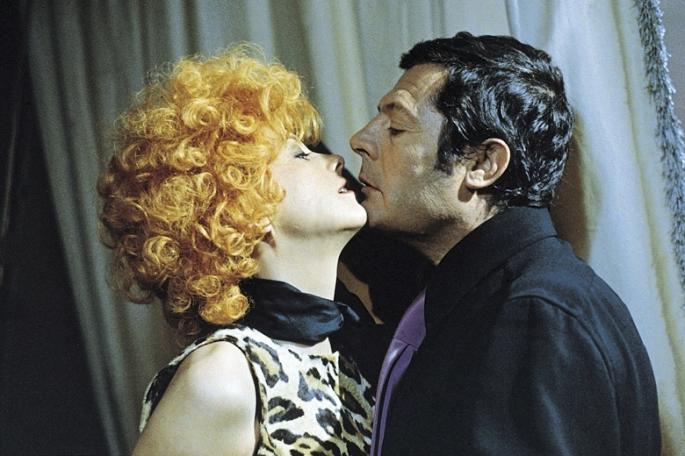
Marco Ferreri may not have been a very celebrated filmmaker while alive nor postmortem. However, if there is one film of his that stands out and has established somewhat of a cult reputation, it’s his 1973 dramedy “La Grande Bouffe.”
The film sheds light on the decadence and charm of the French bourgeoisie, and in particular, four friends suffering from ennui and existential doom. Marcello (Marcello Mastroianni), an Alitalia pilot; Philippe (Philippe Noiret), an important magistrate; Ugo, a restaurant owner and chef (Ugo Tognazzi); and Michel (Michel Piccoli), a television producer have been childhood friends.
Now in their mid-fifties, closer to the end than to the beginning, their successful lives seem grim and hollow. Together, they seclude themselves in a villa in the French countryside and decide to end their lives in a marathon of orgies and eating themselves to death. Literally.
“La Grande Bouffe” is a lovely satire of the decadence of the upper class and the excess and mindless self-indulgence, which it oozes. Despite the gleeful interactions between this witty group of friends, their essential shallowness and the ridiculous amount of food consumed leave the viewer with a feeling of disgust and loss of appetite, which is a victory for Marco Ferreri, who manages to penetrate the brain deep enough with this gluttonous specimen of a film.
4. Werckmeister Harmonies
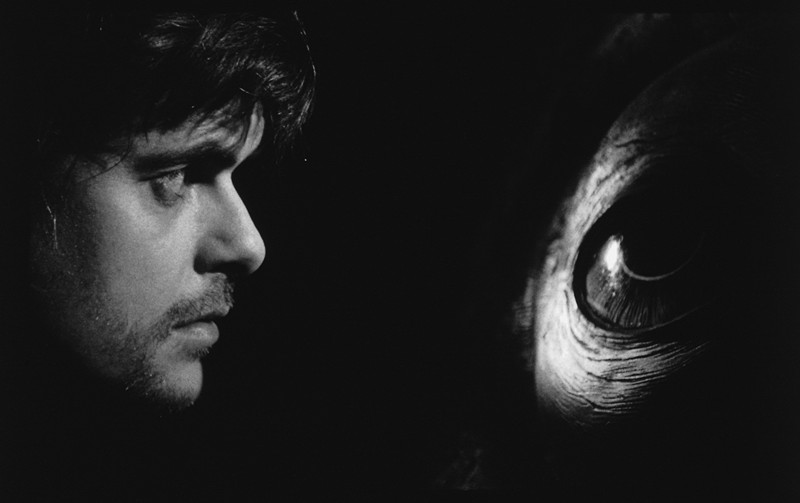
According to many critics, “Werckmeister Harmonies” is one of the greatest films of the 1990s. Bela Tarr doesn’t just deliver an intelligible drama about a small Hungarian town in the communist era, but also adopts less popular techniques with his camera, which makes the film a bit of a tough watch.
For its lengthy nature (145 minutes), the film is composed of 35 shots only. This means that the interval from cut to cut is on average four minutes, rather unusual for traditional filmmaking. This type of visual narration is not the most viewer friendly, but its use is to make a point, which is evinced throughout the film: the passage of time. Slow and weary, yet always sliding and going forward.
János Valushka (Lars Rudolph) is the wide-eyed compassionate protagonist who wanders through the town running errands, and is the caretaker of elder Mr. Ezster (Peter Fitz). János is frequently roaming through, observing and pondering about everything, from the violence that has shaped the history and status quo of his time and space to the wonders of the universe and the stars.
One day, a circus that stirs up the citizens arrives in town. The circus features a mysterious “Prince,” jars of medical anomalies, and the carcass of a whale. The appearance of the circus, the foreigners that come from all around the country to visit it and the increasing frost and mist, disturb the daily routine of the town.
“Werckmeister Harmonies” carries the melancholy and gloom of typical Eastern European cinema but does so in a unique manner. The long shots and camera movements that follow János allow for joint attention to the character and the viewer, and the consequent identification of the viewer with the protagonist. This is probably the most mesmerizing thing about “Werckmeister Harmonies”: the complete achievement of seeing through the eyes of the hero, of experiencing ourselves his doubt and awe.
Even though it’s hard to sit through and attend to due to its length, slow pace and heavy substance, “Werckmeister Harmonies” is absolutely enriching and thought-provoking, whence watching something dies inside and by the end something is being born.
5. A Clockwork Orange

Stanley Kubrick’s dystopian stylistic classic, set in futuristic Britain, tells the story of Alex DeLarge (Malcolm McDowell), the leader of a gang of youths with delinquent behavior, who kill time by engaging in “ultra-violence.” What is on the menu on a regular day for Alex and his mates is trespassing, breaking and entering, beating up and raping innocent civilians.
The peace of Alex’s daily routine is disturbed when one of his mates and subordinates, Dim (Warren Clarke), betrays him at the scene of the crime, which leads to Alex’s arrest. From then onward, the tables are turned. Alex is sentenced and after two years in prison, commits himself as a test subject for a governmental program dovetailing aversion therapy for criminals.
Deeply psychographic and question raising, “A Clockwork Orange” isn’t something to watch before going to bed. Albeit visually formidable, the film’s themes are so controversial and compelling that its precise realization may even be ignored once the viewer is sucked into the dilemma we are presented with. Should “goodness” stem from inside? Are we allowed to induce it to the lost son via operant conditioning, when he does not naturally display it and shakes societal nobility and function?
However established, darkly comedic and wonderfully realized this film is, embracing it and having a good time with it is no piece of cake. It poses a question that is hard to answer, but is of importance and relation to every human. Alex’s monstrous behavior provokes any non-sociopathic human being’s inner feeling of justice.
Nevertheless, when he is tortured in order to change and fit into the norm, it is hard not to sympathize with him and see the grander evil, which is systemic society and its means of robotization. By the end of the film, Alex is “cured” and we‘re left with a crippled, less-offensive version of him which surprisingly may be more frightening than his original one.